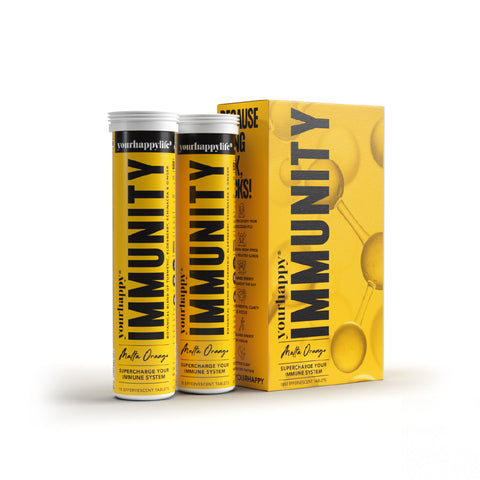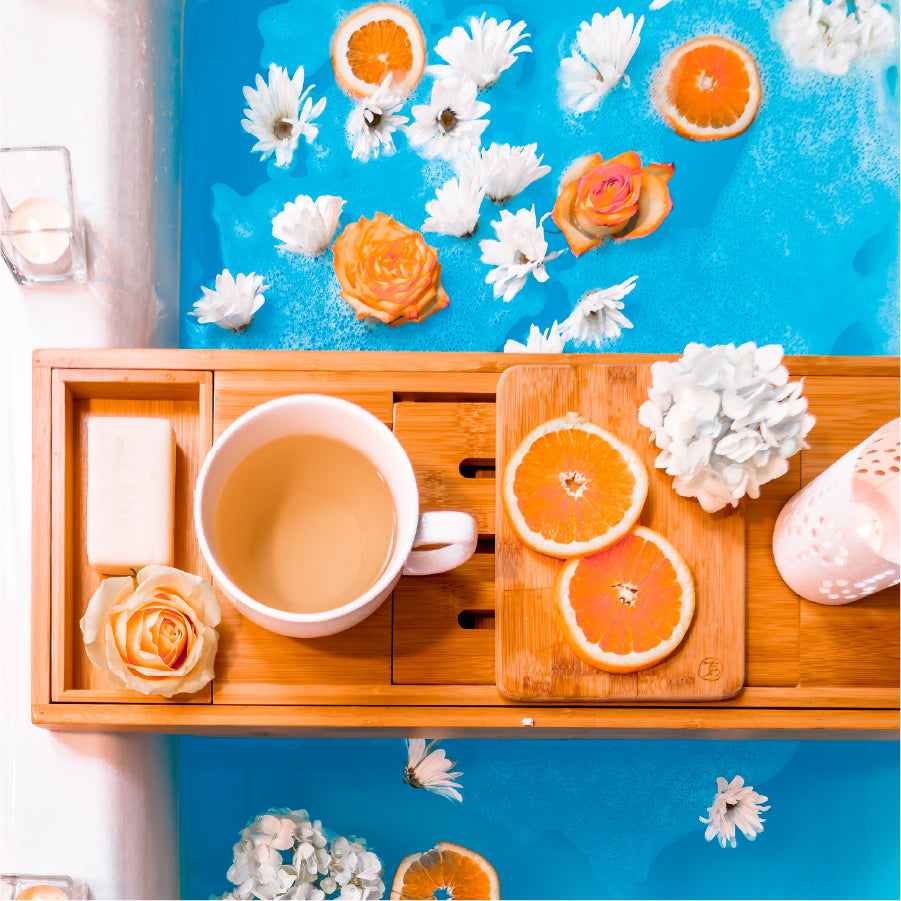
Your aren’t “Done with COVID-19”. Recovery is Important.
I often hear - “I am done with COVID-19, and I can let my guard down.” Well, we are mistaken. This doesn’t mean we are out of danger and it doesn’t give us a free pass to walk around mask-free, indulge in social gatherings, and break all other protocols.
First up, there is an increasing number of people who are continuing to experience symptoms after their initial recovery. And, we are so busy rejoicing that “we are done with COVID” that we ignore identifying the symptoms.
So how long can you experience these symptoms? There is no set rule - it varies from person to person. These post-Covid health conditions aka "long Covid" or "long-haul Covid", can show you symptoms for up to 4 weeks after initial recovery. Sigh.
As we know, this virus is a nasty microbe that can do a lot of damage to your body because of multiple organ failures. Your infection can vary from moderate to severe, damaging your respiratory and other organs. The body also becomes very weak after the virus attacks your body for weeks and the steroids add more to the weakness. This is why you need to go one step further and shower yourself with love even after the virus is out of the body. This will ensure your body is healed and you are at your best to take on your day. Here's what is suggested by many which will help you to boost your immunity.
Rest
Rest up. That’s what’s going to keep you going.
While the doctor tells you that you are quarantined only for 7 days, don’t be mistaken. The virus could still exist in your body right after. Just take a breath, give yourself some time, recover physically, and emotionally - so your body heals faster. The key here is to sleep until the body speeds up the recovery procedure. People are spending every waking moment getting one last look at their screens (news updates, COVID-19 education, social connections). The blue light from these screens tells the brain to stop producing the sleep hormone melatonin, which can lead to trouble falling asleep. Ample sleep supports the immune system, which reduces the risk of infection and can improve outcomes for people fighting a virus. On the other hand, sleep deprivation weakens the body’s defense system and makes people more vulnerable to contracting a virus.
We are always in a hurry to go back to our “normal” as quickly as we can. We suggest, pause and recover - that should be your aim.
Nutritious Diet
No. Just because you are fine now, that doesn’t mean we dump our bodies with a lot of food. Yes, food seems to be our best friend at such trying times, but we need to stop caving into our desires. Eating the right food will ease recovery and help you bring your strength back. When the body is combating an infection, it naturally needs more energy and fluids, hence it is important to fuel the system with the right amount of nutrients.
Make note: It is important to have enough proteins such as lentils, seeds, nuts, eggs, etc. Don't miss out on the protein because it repairs your body. Proteins are the building blocks of life that help in faster recovery, the essential amino acids guard you against harmful pathogens. Consume a high protein diet about 75-100 g of protein is needed per day. Take as much as lentils, legumes, soy, nuts, and seeds as you can in the diet regimen. Animal sources such as lean meat, chicken, fish, and eggs can be included for non-vegetarians.
While most of us are conscious of what we eat, it is important to stop the low-calorie deficit diet right now. As the body has been drained a lot, it is a must to add calorie-dense foods to get energy levels back to form. Include whole-grain cereals like wheat, millet, oats, and brown rice, and starchy roots such as potatoes, sweet potatoes, yam, and tapioca in your daily meal plan. These foods are beneficial for your immune system because they will give a sudden boost of energy. Avoid junk food because it has empty calories and zero nutrients.
Fruits and vegetables have dietary fiber, vitamins, minerals, and antioxidants. These nutrients boost your immune system and fight infections. Isn’t that all you need during these anxious times? Fruits such as oranges, kiwis, strawberries, guava, papaya, and other citrus fruits are packed with vitamin C, which helps you form antibodies in your body and speeds up the recovery process. All green vegetables, carrots, and gourd varieties support the immune system.

Immunity building foods such as fruits, vegetables, herbs, and spices are loaded with antioxidants and a host of bioactive compounds.
This is the one thing we always forget. Water is an important element of life, it carries nutrients in the blood, regulates body temperature, and eliminates waste. So, stay hydrated, and drink at least 8-10 glasses of water every day. Make note that an inflection dehydrates the body, so it’s vital to hydrate yourself when you’re recovering. Restrict the intake of too much caffeine, juices, and carbonated beverages.
Exercise a Little Every Day.
Stop being lazy, and the couch potato we were talking about. Exercising daily speeds up the process of recovery because it improves blood and oxygen circulation. Flush out the toxins, release the happy hormones, and uplift your mood.
However, for people with hematologic or blood symptoms, the guidelines recommend starting with low-intensity exercises and less sedentary behavior that will reduce blood clot risks. Those who have respiratory symptoms like pneumonia are recommended to rest for at least a week after symptoms subside, gradually returning to physical activity with an emphasis on monitoring their breathing.
For people who have had cardiac, or heart, symptoms, the recommendation is to rest for around 2 to 3 weeks after the symptoms stop, while those who have myocarditis, or inflammation of the heart, should wait as much as 3 to 6 months before returning to some form of an exercise regimen.
Lads, remember it is important to stay active. Not to overdo the exercise during recovery.
Play a few memory games
While games are the best way to bond with your family, don’t forget to entertain yourself with some Sudoku, Crosswords, and Jigsaw. Do remember - that this virus does attack a lot of your
organs, including damaging the brain and neural cells. Recent studies have shown that the virus can also infect cells in the CNS, which consists of the brain and spinal cord. This helps explain the increasing number of patients with neurological symptoms, including dizziness, confusion, stroke, and coma.
Check Your Blood Oxygen Level
The country has been crying for oxygen and that is the word that everyone fears right now. Don’t forget to monitor your levels from time to time with an oximeter.
If you have recovered from COVID-19 - there could be damage to the lungs. If at any point your oxygen level does drop. When oxygen levels in the body deplete due to coronavirus infection, the cells in the body do not receive enough oxygen to perform normal bodily functions. Given that the oxygen levels continue to remain low, different parts and organs of the body start to fail and collapse. You must visit your doctor right away.
Watch Out for Other Symptoms
COVID can have long-term consequences on your health. Be alert, and watch out for all symptoms. If you begin to experience shortness of breath, tightness in the chest, or warm flushes, consult a doctor right away.
Covid-19 is known to affect multiple organs including heart and blood vessels, lungs, kidneys, skin, brain, and nerves. Some of the warning signs of lingering COVID-19 conditions are continuous shortness of breath, chest pain, breathing trouble, the reappearance of fever, fatigue, painful joints or muscles and dizziness on standing, forever cough, loss of smell or taste, depression or anxiety, and more. Make a note of this and stay fit. We are all anxious and don’t know how this virus is going to react to our bodies.
Love Yourself
Showering yourself with love is essential. It is the only way to survive and for your future health. It doesn’t make you self-centered if you are doing everything to get back to “normal” and feel the best in your skin. Opt for supplements that boost your immunity, read the back of the pack so you know what you are consuming, and most importantly - speak to your doctor before you make choices.
Sources:
https://pharmeasy.in/blog/6-must-dos-post-covid-19-recovery/


